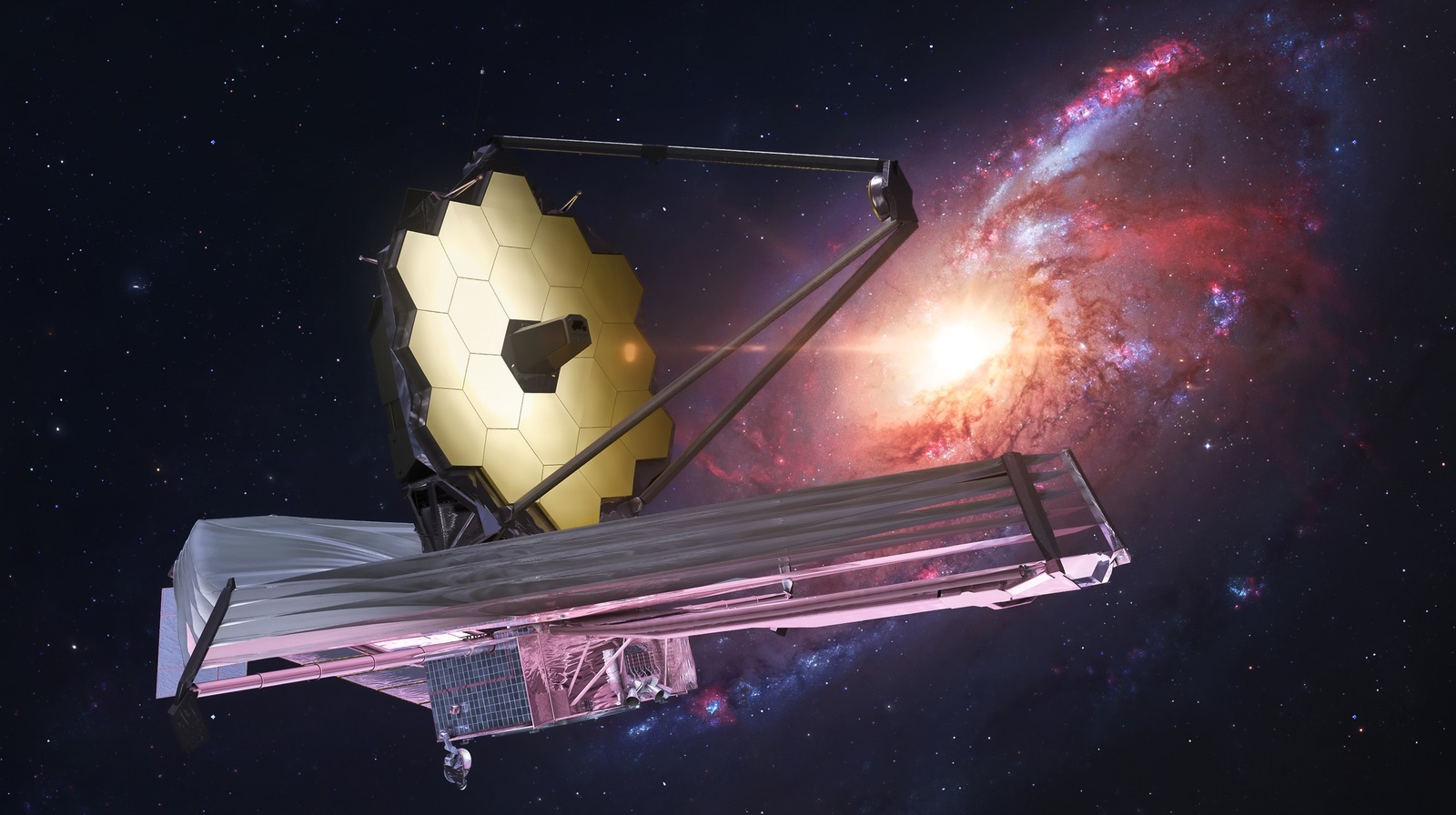How James Webb Telescope Will Study The Earliest Periods Of The Universe

One of Webb’s science missions is called the Next Generation Deep Extragalactic Exploratory Public (NGDEEP) Survey and it will use one of Webb’s spectroscopy instruments to gather information called spectra. Spectra are light split into different wavelengths, like when light hits a prism and is split into a rainbow, and can be used to tell the composition of far-off objects (via Webb Telescope).
Part of the research goal is to find out how many heavier elements, which astronomers refer to as metals, exist in these galaxies. That’s because learning this is important for understanding how galaxies evolve over time. Right after the big bang, only hydrogen and helium were around. Then, when stars began to create heat through fusion, they created heavier elements. These heavier elements were thrown off by the stars when they died and were incorporated into the next generation of stars.
So older stars tend to be low in heavier elements, and younger stars tend to be richer in them. “One of the fundamental ways that we trace evolution across cosmic time is by the amount of metals that are in a galaxy,” explained another of the researchers, Danielle Berg. With Webb’s instruments, various science programs will work on the early universe to find out when the earliest galaxies formed, what they were composed of, and how massive they were.
For all the latest Games News Click Here
For the latest news and updates, follow us on Google News.
